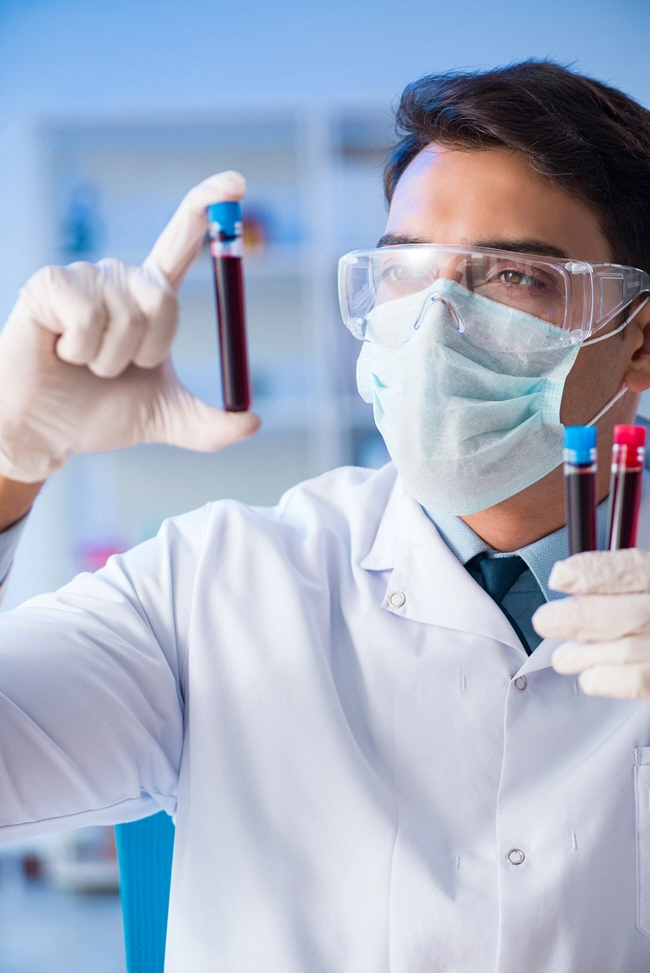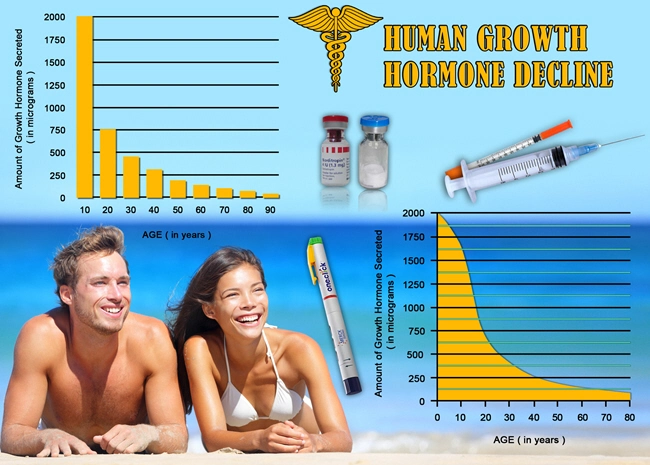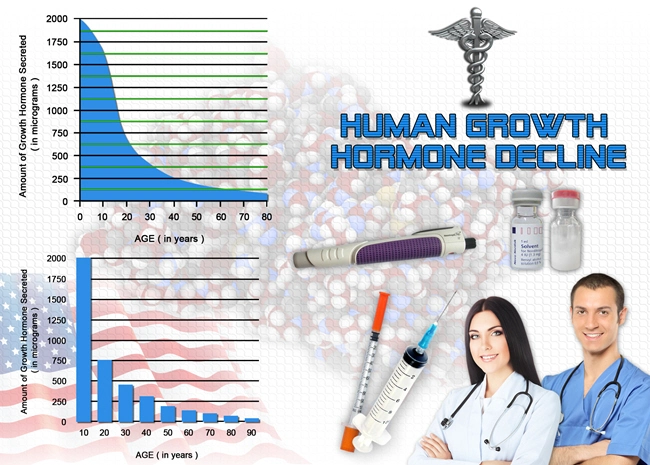
Introduction
Testosterone replacement therapy (TRT) has been a subject of extensive research due to its potential effects on various physiological functions in men. One area of interest is its impact on micturition, or the process of urination. This article delves into the changes observed in micturition diary parameters in men before and after undergoing TRT, and how these changes correlate with serum hormone levels. This exploration is particularly relevant for American males who may be considering or currently undergoing TRT.
Micturition Diary Parameters and Their Importance
Micturition diaries are essential tools in urology, providing detailed insights into a patient's urinary habits. Key parameters recorded include frequency of urination, volume of urine per void, and episodes of nocturia (nighttime urination). These parameters are crucial for diagnosing and managing various urological conditions, such as benign prostatic hyperplasia (BPH) and overactive bladder syndrome.
Testosterone Replacement Therapy and Its Mechanism
TRT is administered to men with clinically low testosterone levels, a condition known as hypogonadism. Testosterone, a primary male sex hormone, influences numerous bodily functions, including muscle mass, bone density, and mood. Its role in urinary function, however, is less understood and warrants further investigation.
Study Methodology
In a recent study, men with hypogonadism were monitored using micturition diaries before and after initiating TRT. Serum hormone levels, including testosterone and dihydrotestosterone (DHT), were measured concurrently to assess any correlations with changes in micturition parameters.
Findings: Pre-TRT Micturition Diary Parameters
Before TRT, participants reported an average of 8.5 urination episodes per day, with a mean voided volume of 250 ml. Nocturia was reported in 60% of the participants, averaging 1.5 episodes per night. These baseline parameters provided a reference point for assessing the impact of TRT.
Post-TRT Changes in Micturition Diary Parameters
Following TRT, significant changes were observed. The average number of daily urination episodes decreased to 7.2, and the mean voided volume increased to 280 ml. Notably, the incidence of nocturia reduced to 45%, with an average of 1.2 episodes per night. These improvements suggest a positive effect of TRT on urinary function.
Correlation with Serum Hormone Levels
The study found a direct correlation between increased serum testosterone levels and improved micturition parameters. Men with higher post-TRT testosterone levels exhibited greater reductions in urination frequency and nocturia. Interestingly, DHT levels also showed a positive correlation with increased voided volume, indicating a potential role of this metabolite in urinary function.
Clinical Implications for American Males
For American males considering TRT, these findings are encouraging. Improved micturition parameters can enhance quality of life, particularly for those with existing urological issues. However, it is crucial for patients to consult with healthcare providers to weigh the benefits against potential risks, such as prostate enlargement, which can also affect urinary function.
Future Research Directions
While this study provides valuable insights, further research is needed to understand the long-term effects of TRT on micturition and to explore the underlying mechanisms. Studies involving larger cohorts and diverse populations will help validate these findings and guide clinical practice.
Conclusion
The correlation between TRT and improved micturition diary parameters in men with hypogonadism highlights the potential urological benefits of this therapy. As American males increasingly seek solutions for low testosterone and related symptoms, understanding the impact of TRT on urinary function becomes increasingly important. This knowledge can empower patients and healthcare providers to make informed decisions, ultimately enhancing patient care and outcomes in the field of urology.
Contact Us Today For A Free Consultation
Dear Patient,
Once you have completing the above contact form, for security purposes and confirmation, please confirm your information by calling us.
Please call now: 1-800-380-5339.
Welcoming You To Our Clinic, Professor Tom Henderson.

- Alpha1-Adrenoreceptor Density, Testosterone, and LUTS Severity in American Men: Current Insights [Last Updated On: March 3rd, 2025] [Originally Added On: March 3rd, 2025]
- Ultrastructural Implications of Testosterone Deficiency on Bladder Muscle: Electron Microscopy Insights [Last Updated On: March 7th, 2025] [Originally Added On: March 7th, 2025]
- Managing Urethral Epithelial Atrophy: Androgen Deficiency and Hormone Replacement Therapy Explained [Last Updated On: March 8th, 2025] [Originally Added On: March 8th, 2025]
- Testosterone's Impact on Prostate Stroma: Collagen and Elastin Dynamics Explored in Study [Last Updated On: March 9th, 2025] [Originally Added On: March 9th, 2025]
- Unveiling the Role of Prostatic Acid Phosphatase in Monitoring Androgen Activity During Testosterone Replacement Therapy in Men [Last Updated On: March 10th, 2025] [Originally Added On: March 10th, 2025]
- Androgen-Dependent Regulation of Phosphodiesterase Type 5 in Prostatic Tissue: Implications for Male Urological Health [Last Updated On: March 10th, 2025] [Originally Added On: March 10th, 2025]
- Unveiling the Impact of Hormone Replacement on Pelvic Floor Electromyographic Activity in Hypogonadal Men [Last Updated On: March 12th, 2025] [Originally Added On: March 12th, 2025]
- Exploring Post-Void Residual Volume Changes in Men with Low Testosterone: A Longitudinal Study on Hormone Replacement Therapy [Last Updated On: March 13th, 2025] [Originally Added On: March 13th, 2025]
- Exploring Urinary Proteomics in Androgen-Deficient Men: Unveiling New Biomarkers for Lower Urinary Tract Dysfunction [Last Updated On: March 15th, 2025] [Originally Added On: March 15th, 2025]
- Metabolomic Analysis of Prostatic Fluid in Testosterone-Deficient Men: Urological Insights [Last Updated On: March 18th, 2025] [Originally Added On: March 18th, 2025]
- Urinary Flow Cytometry Insights into Hypogonadism and Testosterone Therapy Effects [Last Updated On: March 18th, 2025] [Originally Added On: March 18th, 2025]
- Testosterone Deficiency Impacts Mitochondrial Function in Bladder Smooth Muscle: Urological Insights [Last Updated On: March 19th, 2025] [Originally Added On: March 19th, 2025]
- Androgen-Regulated Genes in Urothelium: HRT Impact and Urological Health Insights [Last Updated On: March 19th, 2025] [Originally Added On: March 19th, 2025]
- Prostatic Inflammation in Hypogonadal Men: Histopathology and TRT Benefits [Last Updated On: March 19th, 2025] [Originally Added On: March 19th, 2025]
- Vesicourethral Reflux in Hypogonadal Men: Bladder Neck Dysfunction and Hormonal Impact [Last Updated On: March 20th, 2025] [Originally Added On: March 20th, 2025]
- Testosterone Deficiency's Impact on Lower Urinary Tract Autonomic Innervation: A Quantitative Analysis [Last Updated On: March 20th, 2025] [Originally Added On: March 20th, 2025]
- Aging Men's Prostate Health: Aromatase Activity, Testosterone Therapy, and BPH Risks [Last Updated On: March 20th, 2025] [Originally Added On: March 20th, 2025]
- TRT's Impact on Prostate Health: Assessing Blood Flow with Color Doppler Ultrasonography [Last Updated On: March 21st, 2025] [Originally Added On: March 21st, 2025]
- Prostatic Neuroendocrine Cells in Androgen-Deficient Men: Analysis and HRT Response [Last Updated On: March 21st, 2025] [Originally Added On: March 21st, 2025]
- Testosterone Deficiency and Kidney Stone Risk in American Men: Urine Sediment Patterns [Last Updated On: March 21st, 2025] [Originally Added On: March 21st, 2025]
- Neural Density in Detrusor Muscle of Hypogonadal Men: Clinical Insights for American Males [Last Updated On: March 22nd, 2025] [Originally Added On: March 22nd, 2025]
- Testosterone Therapy Impact on PSA Kinetics and Prostate Health Monitoring Protocols [Last Updated On: March 22nd, 2025] [Originally Added On: March 22nd, 2025]
- Testosterone Therapy's Impact on Prostatic Hyperplasia in Hypogonadal Men: Morphometric Insights [Last Updated On: March 22nd, 2025] [Originally Added On: March 22nd, 2025]
- Urodynamic Insights into Detrusor Overactivity and Testosterone Deficiency in Men [Last Updated On: March 23rd, 2025] [Originally Added On: March 23rd, 2025]
- UPP in Hypogonadal Men: Pre- and Post-ART Insights for Urologists [Last Updated On: March 23rd, 2025] [Originally Added On: March 23rd, 2025]
- TRT's Impact on Prostate Health Monitored by Transrectal Shear Wave Elastography [Last Updated On: March 23rd, 2025] [Originally Added On: March 23rd, 2025]
- TRT's Impact on Prostatic Arterial Flow: Doppler Ultrasonography Insights for American Men [Last Updated On: March 23rd, 2025] [Originally Added On: March 23rd, 2025]
- Ultrasonographic BWT and Urodynamics in Men with Late-Onset Hypogonadism: Clinical Insights [Last Updated On: March 23rd, 2025] [Originally Added On: March 23rd, 2025]
- DSD in Androgen-Deficient Men: Prevalence, Urodynamics, and Management Strategies [Last Updated On: March 23rd, 2025] [Originally Added On: March 23rd, 2025]
- Testosterone Deficiency and Bladder Function in American Men: Insights from AUM [Last Updated On: March 24th, 2025] [Originally Added On: March 24th, 2025]
- Testosterone's Influence on Bladder ECM: GAGs, PGs, and Men's Urological Health [Last Updated On: March 24th, 2025] [Originally Added On: March 24th, 2025]
- TRT Enhances Urinary Flow in Hypogonadal Men: Uroflowmetric and Hormonal Insights [Last Updated On: March 24th, 2025] [Originally Added On: March 24th, 2025]
- Testosterone Therapy's Impact on Non-Bacterial Prostatitis in Hypogonadal Men: Inflammatory Mediators [Last Updated On: March 24th, 2025] [Originally Added On: March 24th, 2025]
- Androgen Deficiency Impact on Urinary Flow: Urodynamic Analysis and Hormonal Insights [Last Updated On: March 24th, 2025] [Originally Added On: March 24th, 2025]
- Androgen Receptor Distribution in Lower Urinary Tract of Hypogonadal Men: Immunohistochemical Insights [Last Updated On: March 24th, 2025] [Originally Added On: March 24th, 2025]
- Urinary Exosomal miRNAs: Biomarkers for Monitoring LUTS Treatment in Hypogonadal American Men [Last Updated On: March 25th, 2025] [Originally Added On: March 25th, 2025]
- Prostatic Calcifications in Hypogonadal Men: Prevalence, Composition, and LUTS Association [Last Updated On: March 25th, 2025] [Originally Added On: March 25th, 2025]
- Prostatic Urothelial Metaplasia in Hypogonadism: Prevalence and Testosterone Therapy Impact [Last Updated On: March 25th, 2025] [Originally Added On: March 25th, 2025]
- TRT and Prostate Health: Growth Factors and Hyperplasia in American Men [Last Updated On: March 25th, 2025] [Originally Added On: March 25th, 2025]
- Postvoid Dribbling in Testosterone-Deficient Men: Insights and Hormone Therapy Solutions [Last Updated On: March 25th, 2025] [Originally Added On: March 25th, 2025]
- Testosterone's Impact on Prostate Gap Junction Proteins and Health Implications [Last Updated On: March 26th, 2025] [Originally Added On: March 26th, 2025]
- Testosterone Therapy's Impact on Prostate Cell Proliferation: A Histomorphometric Study [Last Updated On: March 26th, 2025] [Originally Added On: March 26th, 2025]
- Hypogonadism's Impact on Bladder Neck Collagen and Urodynamic Function in Men [Last Updated On: March 26th, 2025] [Originally Added On: March 26th, 2025]
- LOH Impact on Bladder Compliance in American Men: Urodynamic and Hormonal Insights [Last Updated On: March 26th, 2025] [Originally Added On: March 26th, 2025]
- Nocturnal Polyuria in Testosterone-Deficient Men: Mechanisms and Hormone Therapy Benefits [Last Updated On: March 27th, 2025] [Originally Added On: March 27th, 2025]
- Testosterone Replacement Therapy Improves Bladder Function in Hypogonadal Men: A Cystometric Study [Last Updated On: March 27th, 2025] [Originally Added On: March 27th, 2025]
- Androgen Therapy Modulates Apoptotic Index in Hypogonadal Men's Prostatic Epithelium [Last Updated On: March 27th, 2025] [Originally Added On: March 27th, 2025]
- Androgen Deficiency Impacts Bladder Function via Contractile Protein Expression in Men [Last Updated On: March 27th, 2025] [Originally Added On: March 27th, 2025]
- Testosterone Deficiency Effects on Prostatic Secretions: Biochemical Analysis and Health Implications [Last Updated On: March 27th, 2025] [Originally Added On: March 27th, 2025]
- Neurophysiological Impact of Testosterone on Bladder Sensory Afferents in American Men [Last Updated On: March 27th, 2025] [Originally Added On: March 27th, 2025]
- Testosterone's Impact on Detrusor Oxygenation in American Men with Androgen Deficiency [Last Updated On: March 27th, 2025] [Originally Added On: March 27th, 2025]
- Urethral Sphincter EMG Changes in Hypogonadal Men Post-Testosterone Therapy: Urological Insights [Last Updated On: March 27th, 2025] [Originally Added On: March 27th, 2025]
- Testosterone Therapy and PIN Incidence in Hypogonadal Men: Surveillance and Management [Last Updated On: March 28th, 2025] [Originally Added On: March 28th, 2025]
- PSMA Expression Analysis in Androgen-Deficient American Men Before and After ART [Last Updated On: March 28th, 2025] [Originally Added On: March 28th, 2025]
- TRT's Impact on Prostatic Smooth Muscle in American Men: Electron Microscopy Insights [Last Updated On: March 28th, 2025] [Originally Added On: March 28th, 2025]
- Testosterone Fluctuations in TRT and Maximum Urinary Flow Rate Variability in Hypogonadal Men [Last Updated On: March 28th, 2025] [Originally Added On: March 28th, 2025]
- Mapping Prostatic Stromal ARs in American Men with LUTS: Therapeutic and Diagnostic Insights [Last Updated On: March 30th, 2025] [Originally Added On: March 30th, 2025]
- Testosterone Deficiency and Bladder Sensation: QST Insights Before and After HRT [Last Updated On: March 31st, 2025] [Originally Added On: March 31st, 2025]









